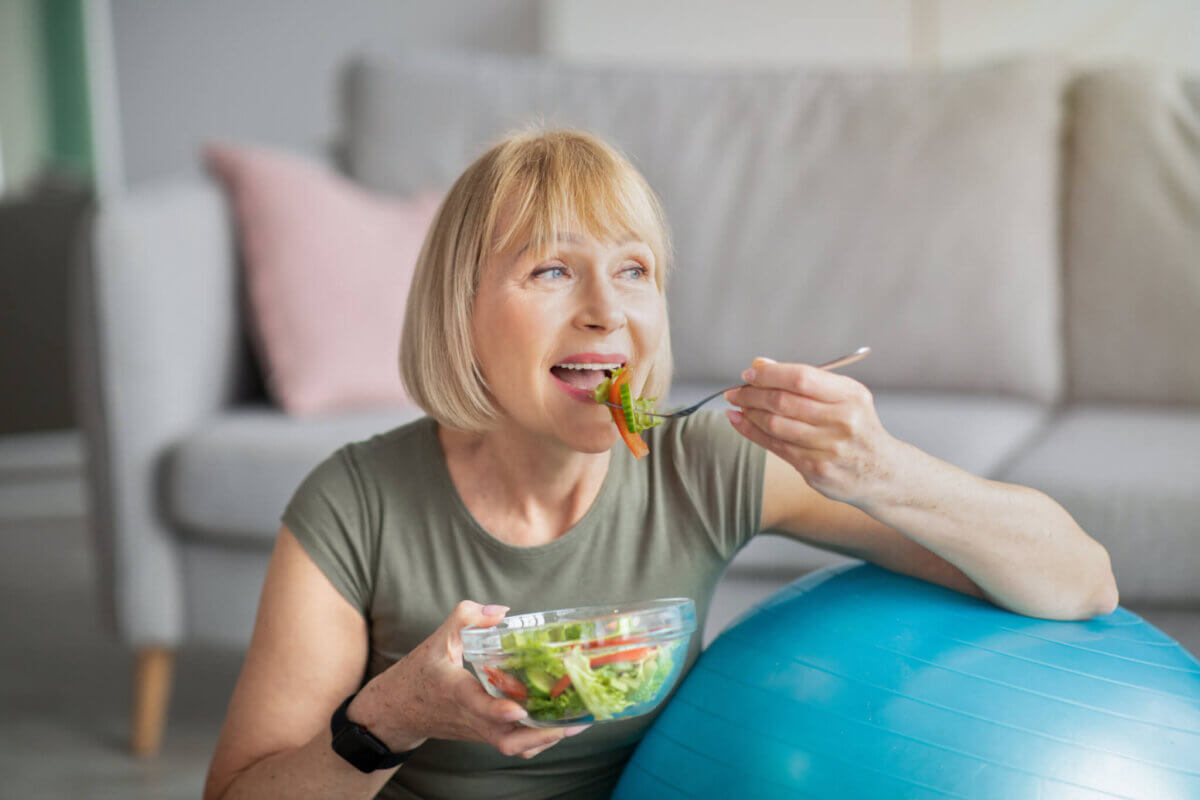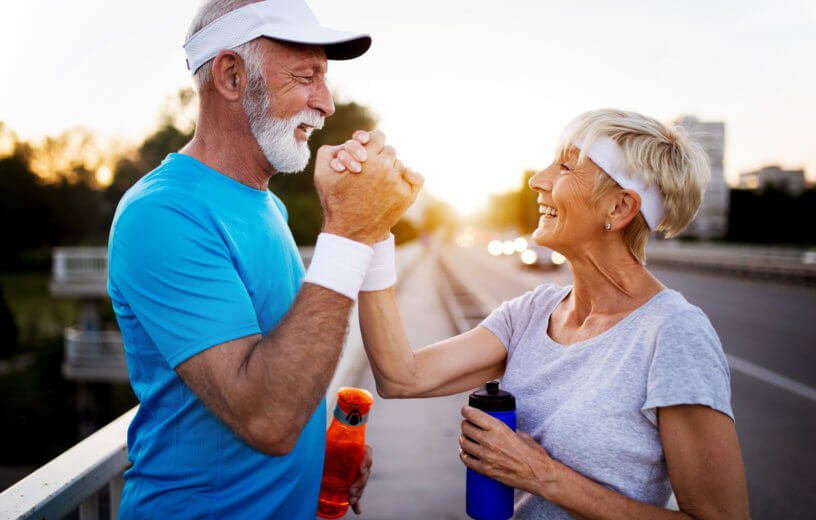AMES, Iowa — Exercise doesn’t always feel good, but researchers from Iowa State University suggest that just feeling good about exercise can help relieve worries about growing older. Researchers found an association between exercise positivity and reduced aging anxiety.
For over a decade now, about 10,000 people in the U.S. turn 65 every single day. The Baby Boomer generation, in combination with those born before 1946, make up the country’s fastest-growing age group. This demographic is actually on track to outnumber children by 2035.
“As this large demographic ages, it’s really important to support health promoting behaviors and have an approach that focuses on prevention — not just treatment — when it comes to chronic diseases. To do that, we need to know what their needs are and how best to address those needs,” ISU Professor Sarah Francis says in a university release.
Prof. Francis holds many titles at Iowa State University, including being a professor and Jane Armstrong Endowed Chair of Food Science and Human Nutrition, a College of Human Sciences’ interim associate dean for Iowa State Extension and Outreach, and interim director for Human Sciences Extension and Outreach. Despite all that, Francis usually introduces herself as a healthy aging advocate, implementation scientist, and registered dietitian.
In 2010, Prof. Francis joined a U.S. Department of Agriculture multi-state project that brought together experts in physical activity, clinical nutrition, and community health programming in an effort to support healthy aging. Part of that research focused on identifying factors influencing physical activity, such as “aging anxiety.” Prof. Francis explains aging anxiety encompasses fears and concerns tied to growing old regarding the loss of autonomy and relationships, physical and psychological changes, and discomfort or lack of enjoyment in being around older people.
“Previous research has shown that if you have high anxiety about aging, you have poor health outcomes. But if you view it more positively as a life stage, you have better health outcomes. You’re more likely to make lifestyle changes that benefit you in the long run,” Prof. Francis explains.

To study how aging anxiety relates to physical activity and various other factors (age, gender, marital status, income), the research team designed a 142-question online survey and recruited participants via Qualtrics. Prof. Francis notes they specifically wanted a cross-section of urban, suburban, and rural residents, and also included people as young as 40 in an effort to understand how different aspects of aging anxiety shift with age. In all, a total of 1,250 people from Washington, D.C., and six states (Iowa, Illinois, Maryland, Rhode Island, South Dakota, and West Virginia) responded to the survey.
Results show participants identifying as African American had a higher interest in health-related programs. Then, another study published earlier this year focused more closely on responses among the 178 African-American survey participants.
With this subset, researchers noted the highest anxiety about aging was the fear of loss, which was greatest among those with low incomes and people living alone. Women between 40 and 49 years-old were more concerned about changes to their physical appearance than their male counterparts, as well as those in older age categories. While exercise rates were lower compared to White survey respondents, African American participants generally showed a positive attitude about physical activity, especially strengthening exercises.
“One of the most important findings is that higher positivity about physical activity relates to lower anxiety about aging,” Prof. Francis comments. “Perhaps this is because the physical, mental and social benefits of staying active contribute to overall well-being and a more favorable perception of the aging process, ultimately reducing anxiety related to growing older.”
The research team now points to evidence indicating exercise, especially strength training, helps older adults conserve bone mass and muscle, consequently retaining motor control and reducing the risk of dementia. They believe their latest findings “can help to develop educational workshops to control aging anxiety while discussing the health benefits of [physical activity] participation.”
Prof. Francis acknowledges many middle-aged and older adults face personal barriers stopping them from exercising. Some fear injuries, others don’t have proper transportation to gyms or live in communities lacking safe sidewalks and parks. To address these issues, Prof. Francis and other researchers from the multi-state project are now planning on developing and testing a community-based virtual program. This program, ideally, would feature at-home physical activities and an educational component to encourage eating healthy as well as protein-rich foods.
“It’s always important to listen to your audience. Doing this type of work helps ensure that the messaging will resonate with those you’re trying to work with, and it’s not a one-size fits all approach,” Prof. Francis concludes.
The study is published in the journal Physical Activity and Health.

